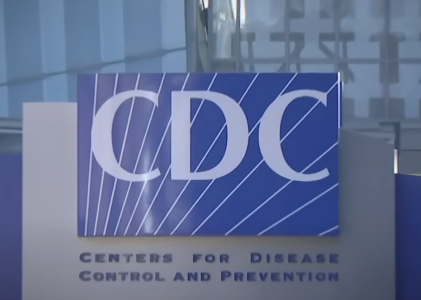Flying this summer? CDC flags renewed health risk for Americans
By
Veronica E.
- Replies 0
For many of us, travel is one of life’s greatest joys—whether it’s a long-overdue family visit, a long-planned cruise, or a summer getaway to somewhere new.
But as vacation season kicks into high gear, public health experts are raising new concerns that may affect how—and where—you travel.
A recently updated advisory from the Centers for Disease Control and Prevention (CDC) is urging travelers to take precautions against a familiar threat that’s making a quiet return.
While most travelers worry about lost luggage or flight delays, there’s a different risk that has caught the CDC’s attention: a rise in measles cases linked to air travel.
Since the start of the year, at least 62 people contagious with measles have boarded flights either into or within the United States, and in at least one confirmed case, the virus spread between airline passengers.

“Travelers can catch measles in many travel settings including travel hubs like airports and train stations, on public transportation like airplanes and trains, at tourist attractions, and at large, crowded events,” the CDC stated in its latest guidance.
The virus is so contagious that even brief time spent in shared spaces—like waiting areas, gates, or planes—can be enough to contract it, especially for those who aren’t vaccinated.
Why is this warning different from past ones?
The CDC previously told unvaccinated travelers to “consider making alternative travel plans.”
Now, that language has been replaced with a more direct message: “consider postponing your trip” if you haven’t had the measles, mumps, and rubella (MMR) vaccine.
In addition, doctors are being advised to counsel certain domestic travelers, not just international ones, on measles risks.
This marks a shift in strategy, as the CDC expands its focus to potential spread within the US—not just from outside its borders.
Also read: Measles on the rise: 4 deadly myths you need to DEBUNK immediately
A growing number of cases—and not just from abroad
So far in 2024, over 1,000 measles cases have been reported, and around 90% are linked to outbreaks within the US, not from travelers bringing it in.
Iowa and Nebraska have recently reported their first cases this year, signaling a widening geographic reach.
“This outbreak does appear to be leveling off, but the affected states remain hypervigilant, and that’s because it’s travel season,” said Dr. Manisha Patel, chief medical officer at the CDC’s National Center for Immunization and Respiratory Diseases, during a May 15 webinar.
Canada and Mexico have also reported significant outbreaks in recent months.
Because of this, the CDC has removed its list of ‘high incidence’ countries entirely, now warning that measles is “an ongoing risk around the world.”
Also read: Is your state affected? Shocking measles update reveals the latest spread
Who should be especially cautious right now?
If you're over 60, it's likely you either had measles during childhood or were vaccinated later.
But if you're not certain, a simple blood test can check your immunity.
Also read: Uncounted measles cases? CDC says more may be flying under the radar
How does measles spread during travel?
Measles is one of the most contagious viruses known, and it can stay in the air for up to two hours after an infected person leaves the area.
Crowded airport terminals, airplanes, and even hotel lobbies can be risky—especially during peak travel times.
Tracking exposure in these locations is tricky.
The CDC notes that “exposures at the airport itself are more difficult to track,” and local health departments are typically responsible for those investigations.
Also read: Exposed to measles? Find out if you’re at risk after a recent case
What can you do to stay protected?
Already vaccinated? You're likely protected—but stay alert
If you’ve had measles or received both MMR doses, you’re considered immune.
Still, it’s wise to wash your hands often, avoid close contact with people who appear sick, and practice basic hygiene while traveling.
Experts point to vaccine misinformation and declining immunization rates as key reasons measles is re-emerging.
With more Americans choosing to skip or delay vaccines, even a single infected traveler can ignite an outbreak in under-vaccinated communities.
As travel season ramps up, a little preparation can go a long way—not just for your own health, but for those around you.
Read next: Whooping cough and measles updates you need to know for your loved one

Have you ever adjusted travel plans due to a health concern? Do you remember getting your MMR vaccine—or having measles as a child? We’d love to hear your experiences, thoughts, and tips for staying healthy on the go!
But as vacation season kicks into high gear, public health experts are raising new concerns that may affect how—and where—you travel.
A recently updated advisory from the Centers for Disease Control and Prevention (CDC) is urging travelers to take precautions against a familiar threat that’s making a quiet return.
While most travelers worry about lost luggage or flight delays, there’s a different risk that has caught the CDC’s attention: a rise in measles cases linked to air travel.
Since the start of the year, at least 62 people contagious with measles have boarded flights either into or within the United States, and in at least one confirmed case, the virus spread between airline passengers.

The Centers for Disease Control and Prevention, the leading national public health agency issuing updated travel and health guidance. Image Source: YouTube / NBC News.
“Travelers can catch measles in many travel settings including travel hubs like airports and train stations, on public transportation like airplanes and trains, at tourist attractions, and at large, crowded events,” the CDC stated in its latest guidance.
The virus is so contagious that even brief time spent in shared spaces—like waiting areas, gates, or planes—can be enough to contract it, especially for those who aren’t vaccinated.
Why is this warning different from past ones?
The CDC previously told unvaccinated travelers to “consider making alternative travel plans.”
Now, that language has been replaced with a more direct message: “consider postponing your trip” if you haven’t had the measles, mumps, and rubella (MMR) vaccine.
In addition, doctors are being advised to counsel certain domestic travelers, not just international ones, on measles risks.
This marks a shift in strategy, as the CDC expands its focus to potential spread within the US—not just from outside its borders.
Also read: Measles on the rise: 4 deadly myths you need to DEBUNK immediately
A growing number of cases—and not just from abroad
So far in 2024, over 1,000 measles cases have been reported, and around 90% are linked to outbreaks within the US, not from travelers bringing it in.
Iowa and Nebraska have recently reported their first cases this year, signaling a widening geographic reach.
“This outbreak does appear to be leveling off, but the affected states remain hypervigilant, and that’s because it’s travel season,” said Dr. Manisha Patel, chief medical officer at the CDC’s National Center for Immunization and Respiratory Diseases, during a May 15 webinar.
Canada and Mexico have also reported significant outbreaks in recent months.
Because of this, the CDC has removed its list of ‘high incidence’ countries entirely, now warning that measles is “an ongoing risk around the world.”
Also read: Is your state affected? Shocking measles update reveals the latest spread
Who should be especially cautious right now?
- Adults born after 1957 who haven’t received both doses of the MMR vaccine or haven’t had measles
- Infants and young children who are too young for full vaccination
- Individuals with compromised immune systems who cannot be vaccinated
If you're over 60, it's likely you either had measles during childhood or were vaccinated later.
But if you're not certain, a simple blood test can check your immunity.
Also read: Uncounted measles cases? CDC says more may be flying under the radar
How does measles spread during travel?
Measles is one of the most contagious viruses known, and it can stay in the air for up to two hours after an infected person leaves the area.
Crowded airport terminals, airplanes, and even hotel lobbies can be risky—especially during peak travel times.
Tracking exposure in these locations is tricky.
The CDC notes that “exposures at the airport itself are more difficult to track,” and local health departments are typically responsible for those investigations.
Also read: Exposed to measles? Find out if you’re at risk after a recent case
What can you do to stay protected?
- Review your records: Check your MMR vaccination status with your doctor.
- Get vaccinated: Two doses are about 97% effective at preventing measles.
- Don’t wait: Immunity takes about two weeks to develop after vaccination.
- Know the symptoms: Watch for fever, cough, runny nose, or rash—especially after travel.
Already vaccinated? You're likely protected—but stay alert
If you’ve had measles or received both MMR doses, you’re considered immune.
Still, it’s wise to wash your hands often, avoid close contact with people who appear sick, and practice basic hygiene while traveling.
Experts point to vaccine misinformation and declining immunization rates as key reasons measles is re-emerging.
With more Americans choosing to skip or delay vaccines, even a single infected traveler can ignite an outbreak in under-vaccinated communities.
As travel season ramps up, a little preparation can go a long way—not just for your own health, but for those around you.
Read next: Whooping cough and measles updates you need to know for your loved one
Key Takeaways
- The CDC has recorded at least 62 cases this year involving contagious travelers, with confirmed measles spread between passengers on a flight.
- About 90% of 2024 cases are linked to outbreaks within the US, not from international travel—raising concern for community spread.
- The CDC now urges unvaccinated individuals to postpone travel, especially during peak flight season.
- Older adults and those with weakened immune systems may face higher risk of complications and should review their immunity status before flying.
Have you ever adjusted travel plans due to a health concern? Do you remember getting your MMR vaccine—or having measles as a child? We’d love to hear your experiences, thoughts, and tips for staying healthy on the go!






